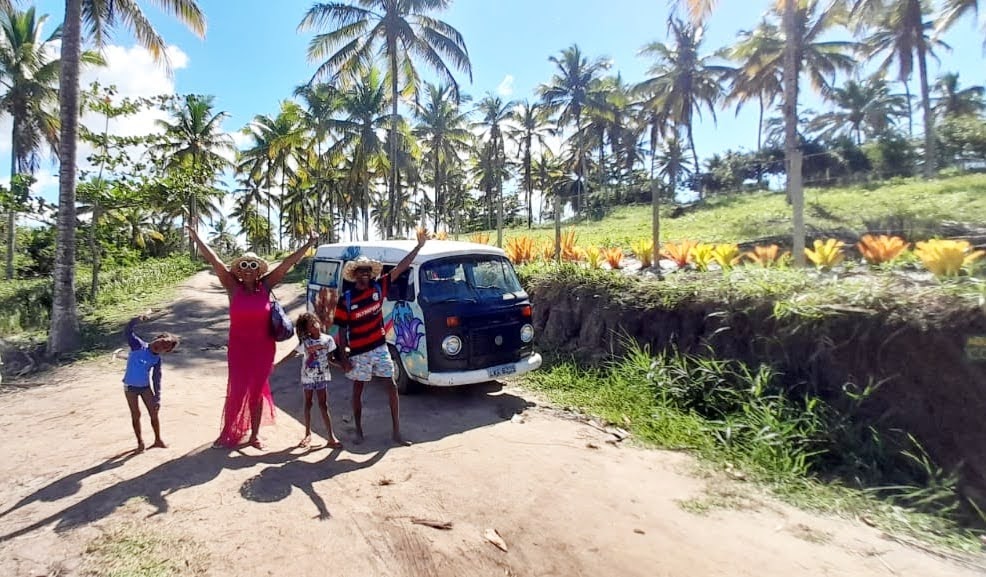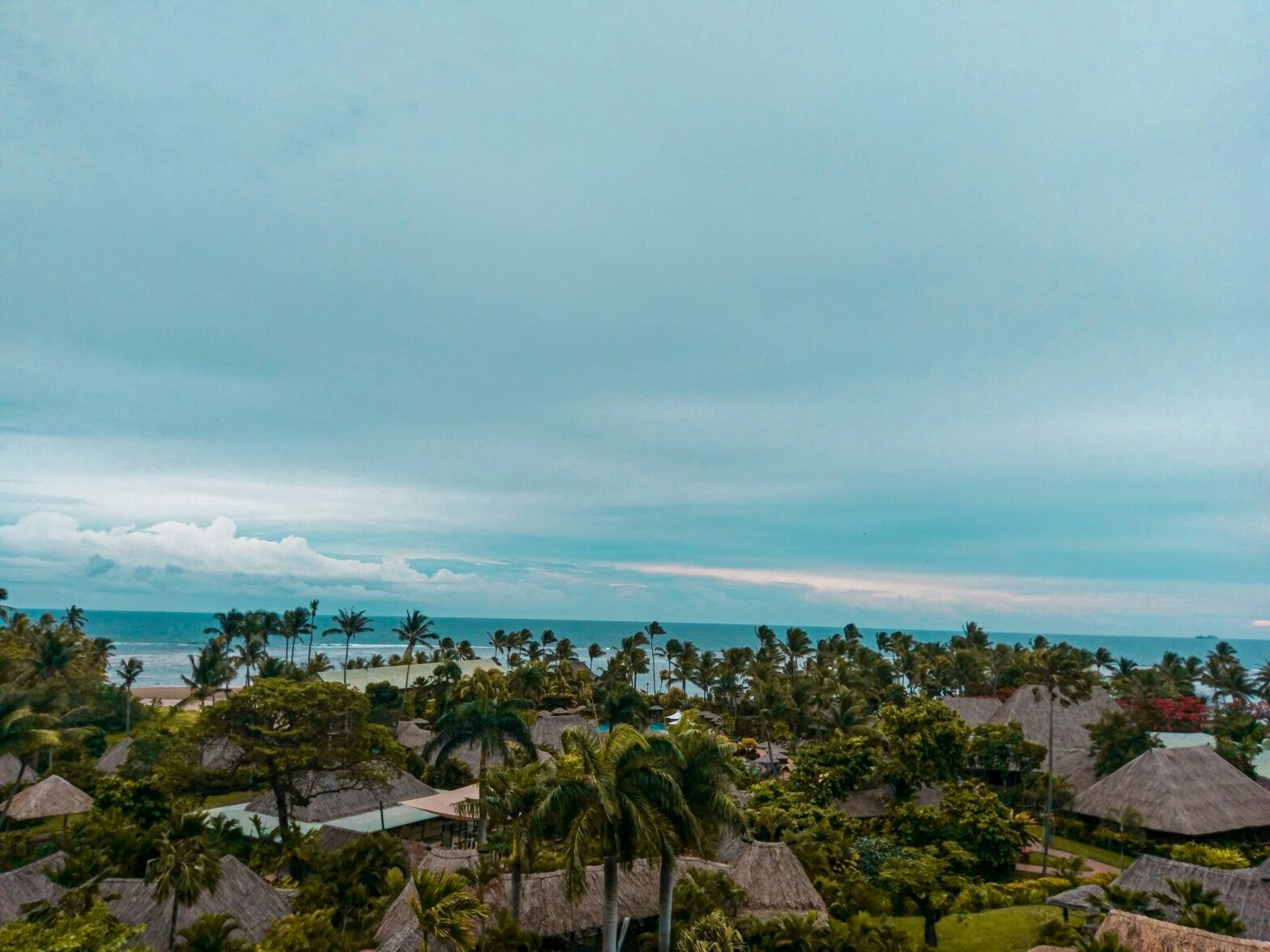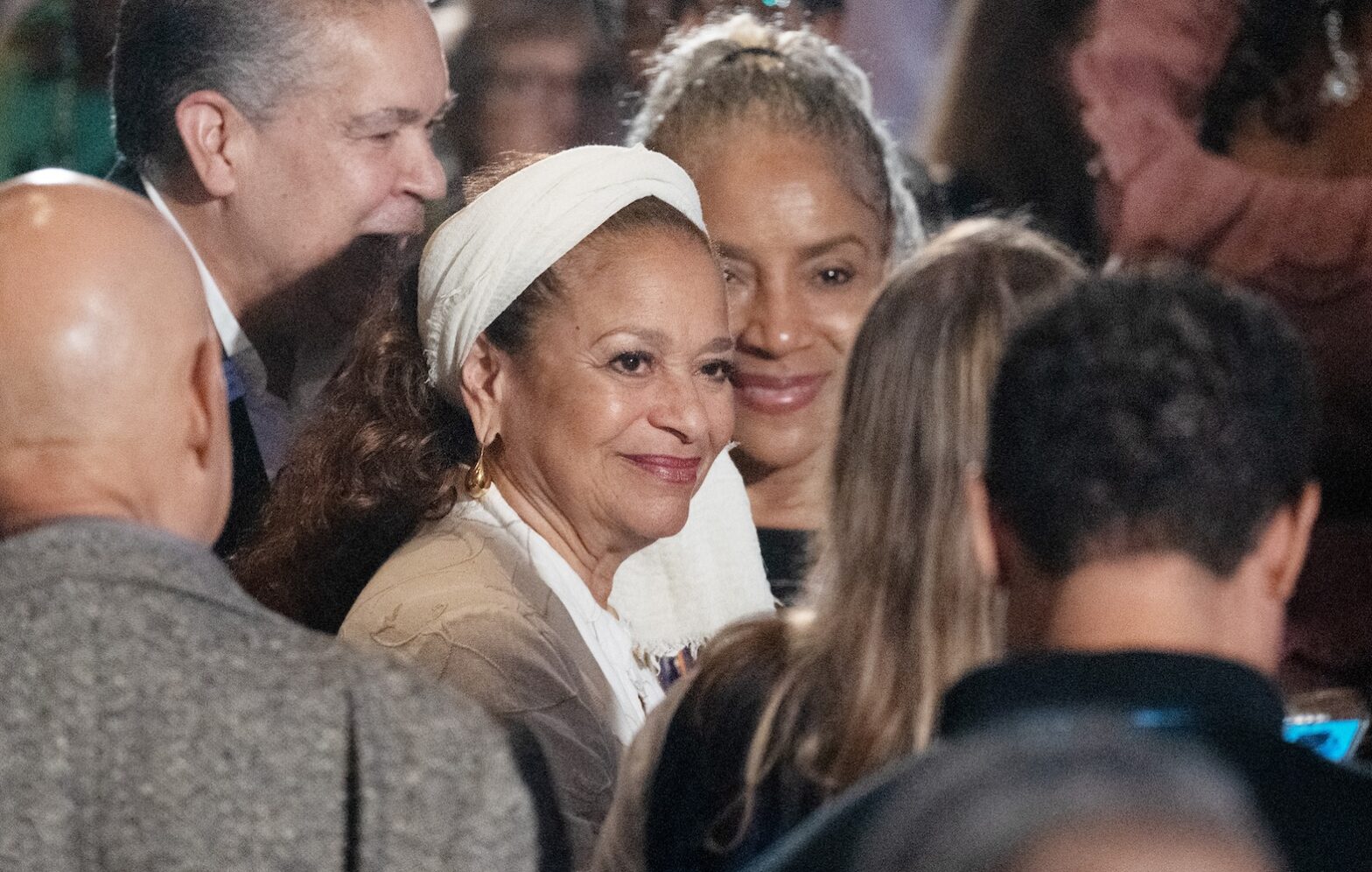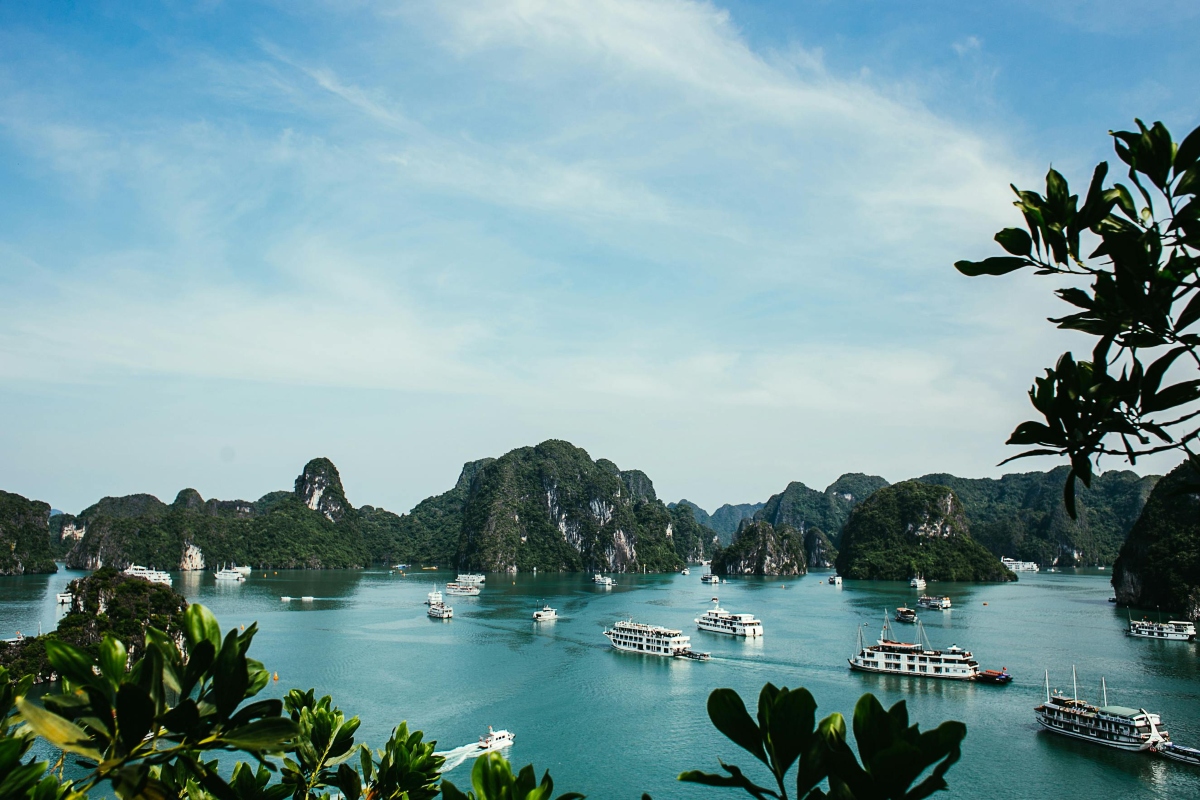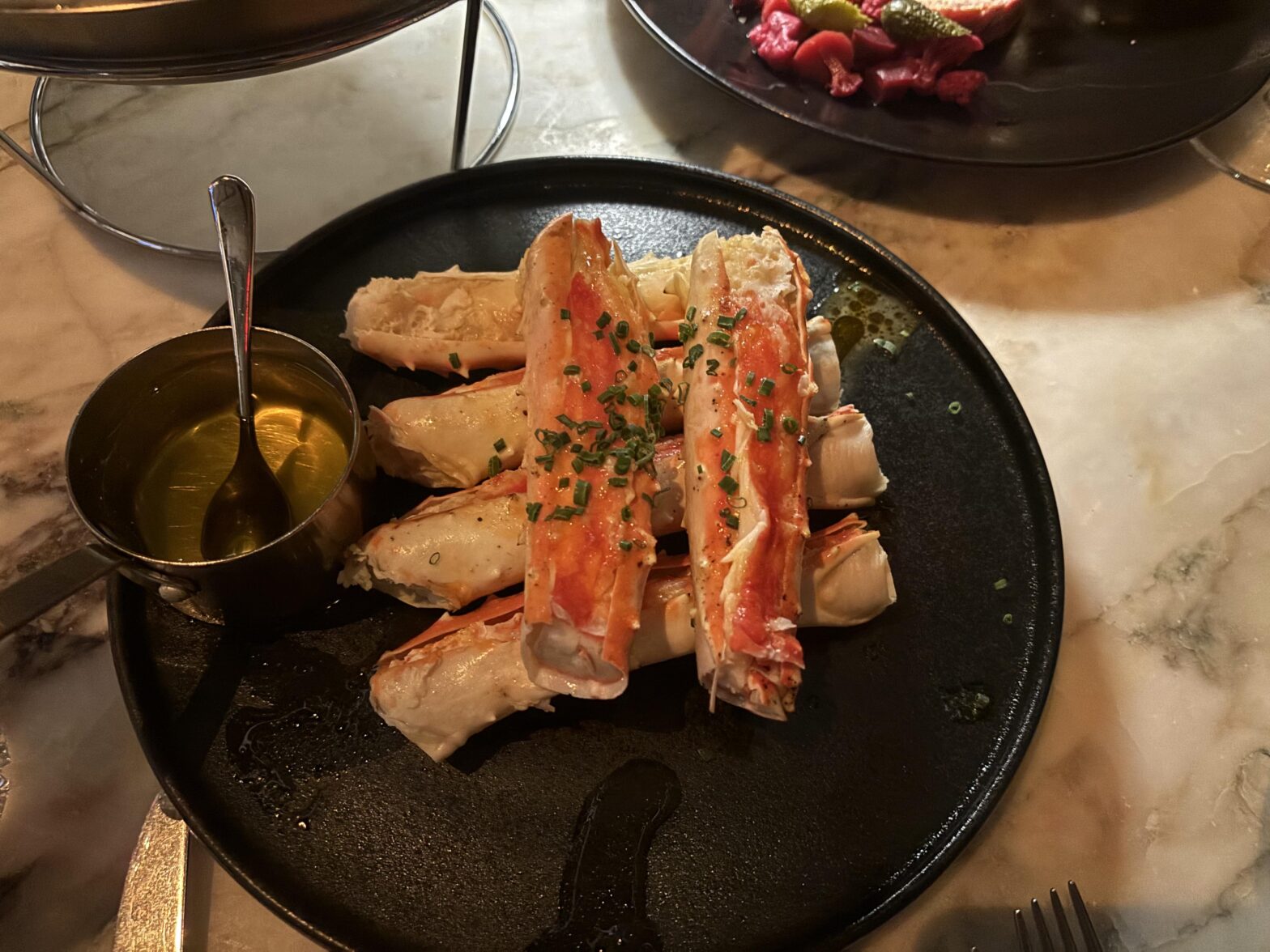On the road since 2017, Thaisa Barros, Fellipe Barros, and their children Imolé and José are an Afro-Brazilian family that has travelled through Southeast Brazil before spending a good amount of time exploring Bahia.
Now, they want to go farther.
To connect with the African diaspora in a deeper way, the family is now traveling to Hawaii in a 1976 Volkswagen bus after traveling across the Americas.
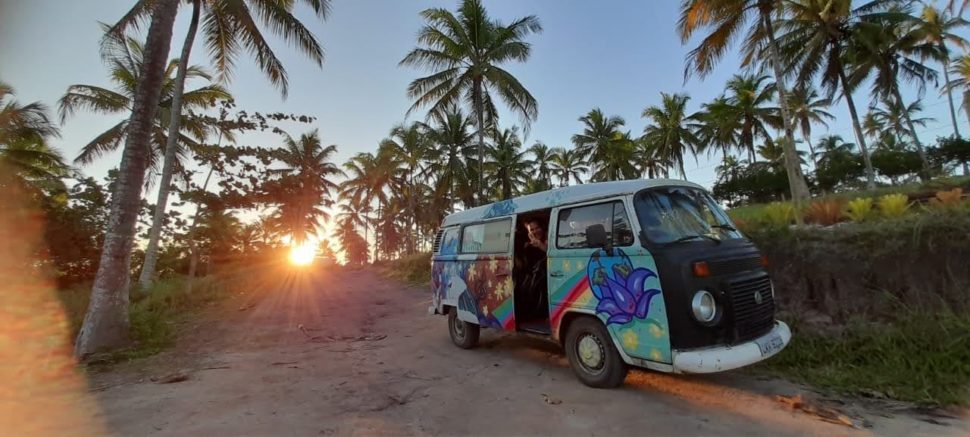
“It is not very common to see a Black family from Brazil have this kind of project. My husband and I have embraced the idea of creating a nomadic Afro-Brazilian family,” Thaisa told Travel Noire.
Thaisa Barros, who is a TV host on a local broadcast, and also a social scientist and therapist, explained that being part of a nomadic Black family is the best way to be in contact with their African roots through a real experience. The family chose Hawaii as the final destination for two reasons: so that Felipe can compete in the Ultraman Championship in 2023 as a disabled athlete, and for the family to get more into surfing.
Thaisa talked to Travel Noire about the family’s journey of traveling to Hawaii.
Travel Noire: How did the idea to travel in a VW bus come about?
Thaisa Barror: In 2017 after saving money from our former jobs, we decided to leave our hometown Rio de Janeiro to go to Ubatuba (a small town located on Brazil’s Southeastern coast). We wanted to live in an ecovillage to have a simpler life outside a major urban area. But, that didn’t work out. We then decided to go to some other cities and ended up in Bahia. There, we realized we didn’t want to only stay in one city. We wanted to visit as many cities as possible to accumulate experience as travelers. We wanted to build a nomadic lifestyle.
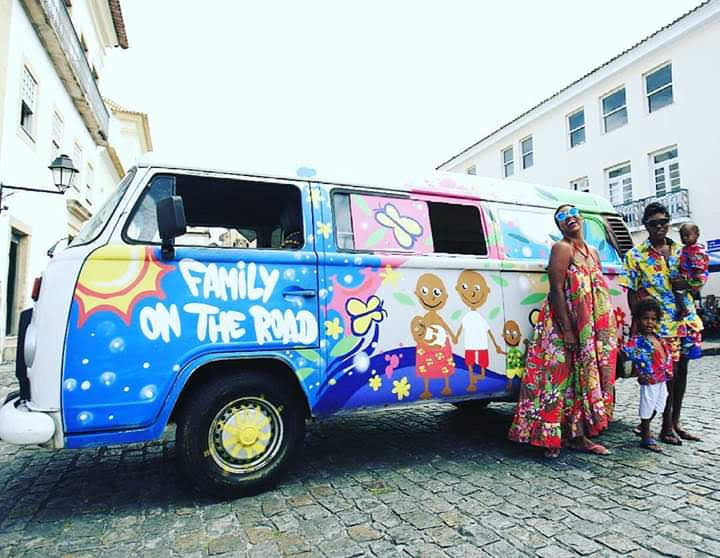
TN: Why travel in a ’76 VW bus?
Thaisa Barros: We’ve been traveling by VW bus since 2017, and we realized that for the first part of the trip across the Americas it would be much easier to drive. Besides, it fits very well with our lifestyle.
TN: Can you please tell us more about your plan ?
Thaisa Barros: We started our journey traveling around Brazil’s southeast region, and we ended up in Bahia. We’ve traveled Bahia from north to south, east to west, and, of course, Salvador (Bahia’s capital city). From there we wanted to follow Brazil’s northeast coast, leave Brazil through the North and travel across the Americas to Panama. Then right there, the dream: Hawaii. However, our plan had to be postponed because of the pandemic. But now we will be back on the road again, going to other cities in Brazil in our VW bus.
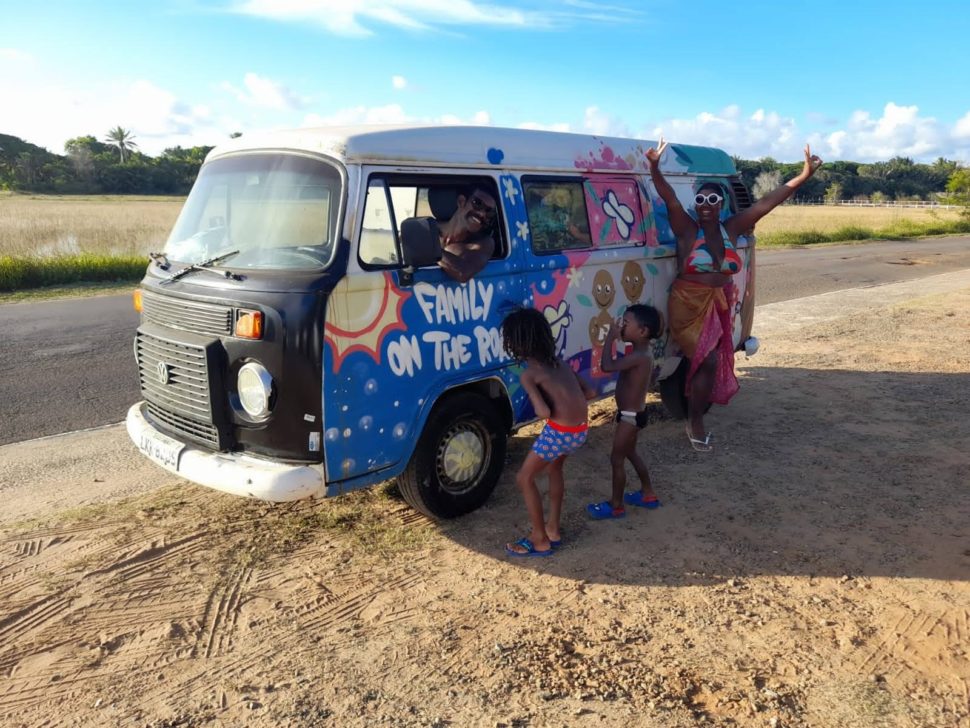
TN: How do you support yourself along the way?
Thaisa Barros: We had to learn how to be economical. Adopting what we would call slow travel as a travel model. So, we created more lasting bonds within every community we visited and the place itself, and we stay in amazing places at a fairer price. Our motto is: to be native to the whole world.
Also, I work providing therapeutic services, courses, and lectures. We are saving money and looking for sponsorship for our tour throughout the Americas, which might start next year. We are also planning to create a YouTube page to post our adventures and try to find other sponsors. We are confident that we are going to make it happen.
TN: How are you handling the schooling for your kids?
Thaisa Barros: We are educators by nature with academic backgrounds. We chose to homeschool them. It has been working so far.
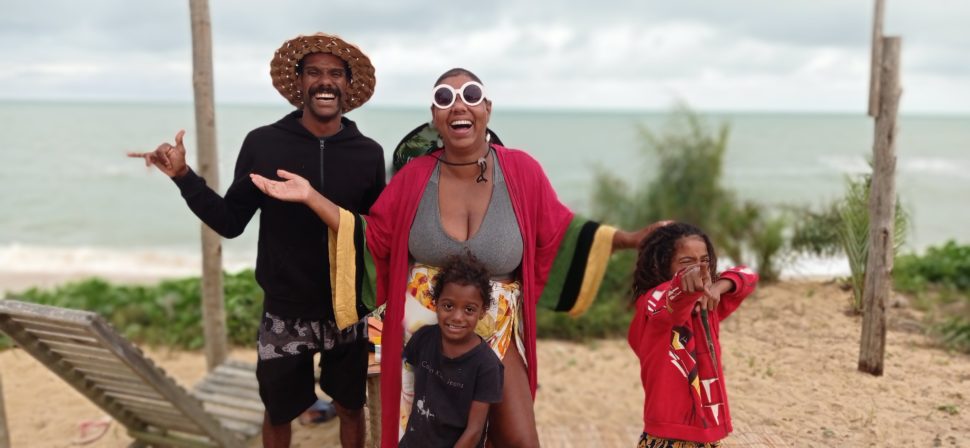
TN: Why did you choose Hawaii as your final destination?
Thaisa Barros: Felipe is a parathriathlete that is fighting to be the first and perhaps only disabled person to complete the Ultraman, an ultra-long distance race in Hawaii, in October 2023. Also, because we love the surfing lifestyle.
Our goal is to show other Black families in Brazil that we belonged to the Americas, and it is cool to occupy places that people tell us not to go to. Of course, we are doing our research to make sure we are as safe as possible.
We want to provide a legacy for our little ones, now ages 7 and 5, and show them that nothing and no one can define who they are or the size of their dreams.
You can follow more the Afro-Brazilian family here.
